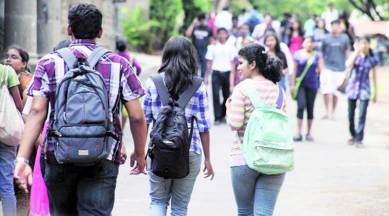‘UGC working to reduce gap between private, public varsities’
Prof Bhushan Patwardhan, Vice-Chairman, UGC said: “The UGC is concerned with the quality and affordability of education in India and is working to reduce the gap between public and private universities.”

Affordable education, lack of private institutes in the filed of agriculture and overlapping of jurisdiction of different regulatory bodies were the major issues which the eminent educationists underlined during the session ‘Plenary of Academic Regulatory Bodies’ at the 106th Indian Science Congress on Thursday.
Prof Bhushan Patwardhan, Vice-Chairman, UGC, pointed out that India was lacking in private institutes in the field of agriculture and the country’s growth was not possible with STEM (science, technology, engineering, and mathematics) alone as it needed STEAM (science, technology, engineering, agriculture, and mathematics). He said that the wall between agriculture, medical and mainstream sciences must be broken.
Apart from this, he said: “The UGC is concerned with the quality and affordability of education in India and is working to reduce the gap between public and private universities.”
While speaking about the overlapping jurisdiction of different regulatory bodies, the chairman of All India Council for Technical Education (AICTE), Prof Anil Sahasrabudhe, emphasised the role, function and future of regulatory bodies, accreditation agencies and ranking agencies to shape the future of education in India. AICTE regulates technical education and University Grant Commission (UGC) regulates general education in India.
“Like the Pharmacy Council of India (PCI) and AICTE, both regulate pharmacy education. There is continuous improvement in law and policies along with the support of government to rectify this overlap,” he said. Regulatory bodies should act as facilitators instead of regulators, he added.
He said that to strengthen the student-teacher relationship it has been suggested the first three weeks should be non-teaching in any semester. This three-week induction programme will be started in near future. He also spoke about the need for examination reforms.